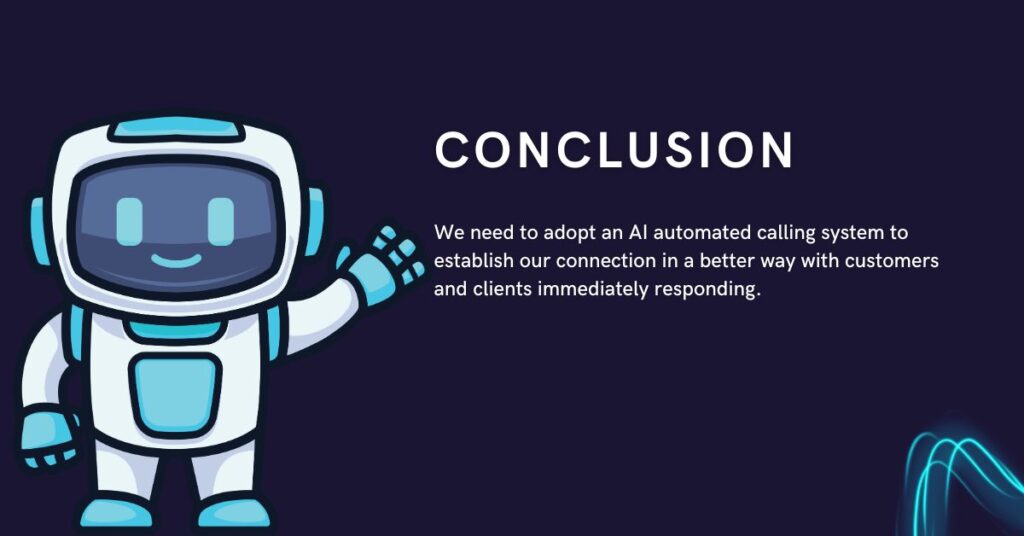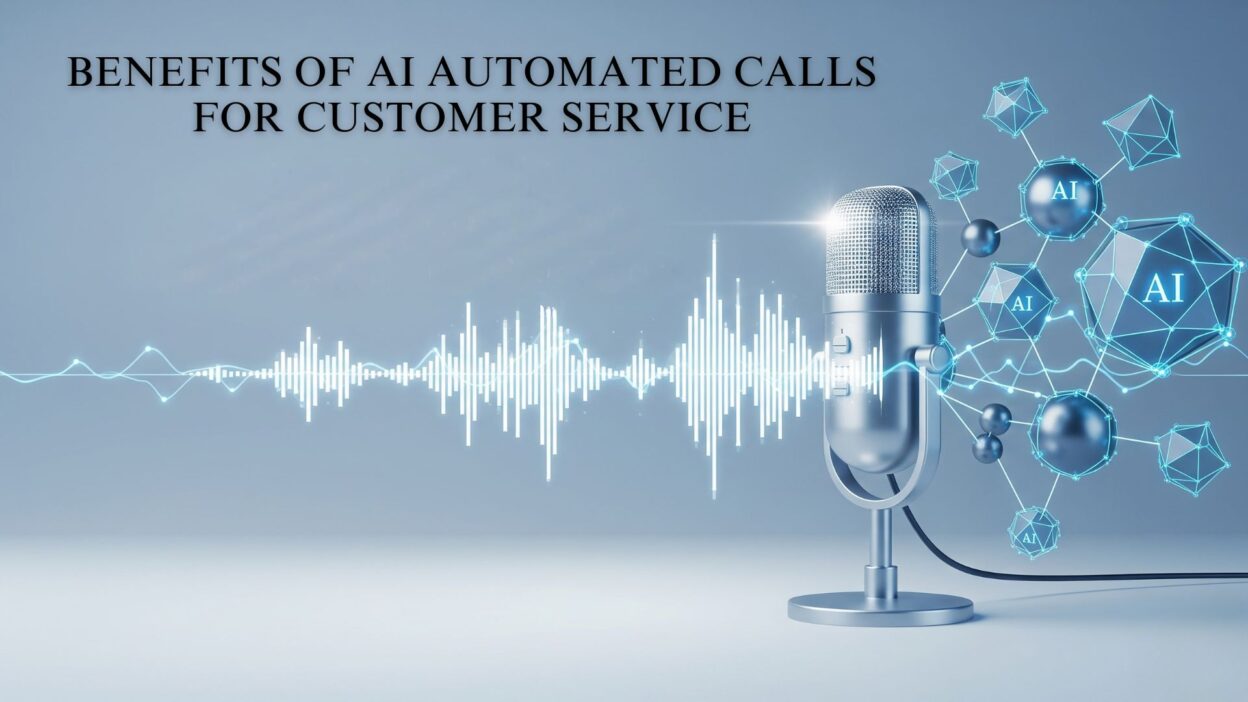TL;DR AI automated calls are revolutionizing customer service across industries worldwide. Modern businesses face increasing pressure to deliver exceptional customer experiences. Traditional call centers struggle with high volumes and limited resources. Companies seek innovative solutions to meet growing customer expectations.
Table of Contents
Customer service has become a critical differentiator in competitive markets. Organizations invest heavily in technologies that enhance customer interactions. Smart businesses recognize the transformative potential of artificial intelligence. AI automated calls represent the next evolution in customer support.
The Current State of Customer Service
Customer expectations have reached unprecedented levels. People demand instant responses to their inquiries. Traditional phone systems create frustrating wait times. Human agents become overwhelmed during peak hours.
Businesses lose customers due to poor service experiences. Studies show that 67% of customers abandon purchases after bad service encounters. Companies cannot afford to ignore these statistics. The cost of acquiring new customers exceeds retaining existing ones.
Modern consumers expect 24/7 availability. They want personalized interactions tailored to their needs. Traditional systems fail to meet these requirements consistently. AI automated calls bridge this gap effectively.
Understanding AI Automated Calls
AI automated calls for customer service utilize advanced artificial intelligence technologies. These systems process natural language and respond intelligently. Machine learning algorithms improve performance over time. Voice recognition technology enables seamless conversations.
The technology combines multiple AI components. Natural language processing understands customer requests. Speech synthesis creates human-like responses. Sentiment analysis detects emotional states during calls.
These systems integrate with existing business infrastructure. They access customer databases and transaction histories. Real-time data enables personalized interactions. AI automated calls adapt to individual customer preferences.
Key Benefits of AI Automated Calls
Enhanced Availability and Accessibility
Traditional call centers operate during limited hours. AI automated calls provide round-the-clock service availability. Customers receive assistance whenever they need it. Geographic barriers disappear with automated systems.
Time zone differences no longer create service gaps. International customers enjoy consistent support experiences. Emergencies receive immediate attention. Weekend and holiday support becomes standard practice.
The accessibility extends beyond temporal limitations. Multiple languages become available simultaneously. Customers communicate in their preferred language. Cultural nuances are recognized and respected.
Improved Operational Efficiency
AI automated calls handle multiple conversations simultaneously. Human agents manage single interactions at a time. Automated systems scale infinitely without additional staffing. Peak periods no longer overwhelm customer service departments.
Call routing becomes intelligent and efficient. Customers reach the appropriate departments immediately. Complex queries transferred to specialized agents. Simple requests receive instant resolution.
Response times drop dramatically with automation. Customers spend less time waiting for answers. First-call resolution rates increase significantly. Overall customer satisfaction improves measurably.
Significant Cost Reductions
Staffing costs represent major expenses for call centers. AI automated calls reduce human resource requirements. Companies save on salaries, benefits, and training costs. Overhead expenses decrease substantially.
Infrastructure costs become more predictable. Cloud-based solutions eliminate hardware investments. Maintenance expenses reduce with automated systems. Scalability occurs without proportional cost increases.
Return on investment appears quickly with implementation. Monthly savings compound over time. Budget allocation becomes more strategic. Resources shift toward business growth initiatives.
Consistent Service Quality
Human agents experience varying performance levels. Fatigue affects service quality throughout shifts. AI automated calls maintain consistent standards. Every customer receives identical service excellence.
Emotional states do not impact automated responses. Stressful situations receive calm, professional handling. Personal biases are eliminated completely. Service quality remains uniform across all interactions.
Training requirements disappear for automated systems. Updates occur instantly across all channels. Best practices implement immediately. Service standards maintain continuously.
Advanced Personalization Capabilities
AI automated calls access comprehensive customer data. Previous interactions inform current conversations. Purchase histories enable targeted recommendations. Personal preferences shape service delivery.
Behavioral patterns guide conversation flows. Customers receive relevant information proactively. Predictive analytics anticipate future needs. Personalized experiences increase customer satisfaction.
Dynamic content adapts to individual circumstances. Promotional offers match customer interests. Service recommendations align with usage patterns. Communication styles adjust to preferences.
Technological Innovations Driving Progress
Machine Learning Advancements
Machine learning algorithms continuously improve system performance. Each interaction provides valuable training data. Pattern recognition becomes more sophisticated over time. AI automated calls evolve with customer needs.
Predictive modeling anticipates customer inquiries. Proactive outreach prevents potential issues. Maintenance schedules optimize based on usage patterns. System reliability increases through intelligent monitoring.
Natural language understanding reaches human-like levels. Conversational AI handles complex topics effectively. Context awareness improves throughout conversations. Emotional intelligence guides appropriate responses.
Integration Technologies
Modern AI automated calls integrate seamlessly with existing systems. Customer relationship management platforms share data effortlessly. Enterprise resource planning systems provide real-time information. Omnichannel experiences become standard practice.
API connections enable robust data exchange. Third-party services enhance system capabilities. Custom integrations meet specific business requirements. Flexibility accommodates unique operational needs.
Cloud computing provides scalable infrastructure. Deployment becomes rapid and efficient. Updates occur automatically without downtime. Global accessibility ensures consistent performance.
Security and Privacy Enhancements
Data protection remains paramount in AI automated calls. Encryption technologies secure sensitive information. Compliance frameworks ensure regulatory adherence. Customer privacy receives highest priority.
Authentication systems verify caller identities. Fraud detection algorithms identify suspicious activities. Secure communication channels protect conversations. Data retention policies maintain appropriate boundaries.
Regular security audits maintain system integrity. Vulnerability assessments identify potential risks. Patch management keeps systems current. Monitoring tools detect anomalous behavior.
Implementation Strategies for Success
Planning and Assessment
Successful AI automated calls implementation requires careful planning. Current system assessments identify integration opportunities. Business requirements define system specifications. Stakeholder alignment ensures project success.
Customer journey mapping reveals optimization opportunities. Pain points become automation targets. Service level agreements establish performance expectations. Success metrics define measurable outcomes.
Resource allocation covers all implementation phases. Timeline development ensures realistic expectations. Risk assessment identifies potential challenges. Contingency planning prepares for unexpected issues.
Training and Change Management
Employee training programs prepare staff for AI automated calls. New workflows require comprehensive education. Change management strategies address resistance. Communication plans keep stakeholders informed.
Ongoing support ensures smooth transitions. Feedback mechanisms capture employee concerns. Success stories build organizational confidence. Recognition programs celebrate achievements.
Continuous learning opportunities maintain competency. Technology updates require additional training. Best practice sharing accelerates adoption. Performance monitoring guides improvement efforts.
Monitoring and Optimization
Performance analytics track AI automated calls effectiveness. Key performance indicators measure success. Regular reviews identify improvement opportunities. Data-driven decisions guide optimization efforts.
Customer feedback provides valuable insights. Satisfaction surveys reveal service gaps. Call recordings highlight training needs. Sentiment analysis tracks emotional responses.
Continuous improvement cycles enhance system performance. Regular updates incorporate new features. Feedback loops ensure customer needs remain central. Evolution keeps pace with changing expectations.
Future Trends and Developments
Emerging Technologies
Artificial intelligence continues advancing rapidly. Voice synthesis becomes increasingly natural. Emotional intelligence capabilities expand significantly. Conversational AI approaches human-like interactions.
Augmented reality integration enhances support experiences. Visual elements supplement voice communications. Screen sharing capabilities improve problem resolution. Remote assistance becomes more effective.
Blockchain technology ensures data integrity. Smart contracts automate service agreements. Decentralized systems increase reliability. Trust mechanisms strengthen customer relationships.
Industry-Specific Applications
Healthcare organizations implement AI automated calls for appointment scheduling. Financial institutions use them for account inquiries. Retail companies deploy them for order tracking. Each industry adapts technology to specific needs.
Compliance requirements shape implementation approaches. Regulatory frameworks guide system design. Industry standards ensure appropriate practices. Specialized features address unique challenges.
Vertical integration creates comprehensive solutions. Industry expertise informs system development. Best practices emerge from successful implementations. Knowledge sharing accelerates adoption.
Read More: Transforming Business Growth With AI Automated Calling Systems
Conclusion

AI automated calls represent the future of customer service excellence. These systems deliver superior customer experiences while reducing operational costs. Organizations that embrace this technology gain competitive advantages. Early adopters position themselves for long-term success.
The benefits extend beyond immediate cost savings. Customer satisfaction increases with improved service quality. Employee productivity rises as routine tasks become automated. Business scalability improves with flexible solutions.
Implementation requires careful planning and execution. Success depends on proper training and change management. Ongoing optimization ensures continued effectiveness. Customer feedback guides continuous improvement.
The future promises even greater capabilities. Emerging technologies will enhance current systems. Industry-specific solutions will address unique needs. AI automated calls will become standard practice across all sectors.
Organizations cannot afford to ignore this transformation. Customer expectations will continue rising. Competitive pressures will intensify. Early investment in AI automated calls ensures future viability.
The journey toward AI-powered customer service begins with a single step. Companies must evaluate their current capabilities. Strategic planning guides successful implementation. The benefits justify the investment required.
AI automated calls are not just technological upgrades. They represent fundamental shifts in customer service philosophy. Organizations that understand this distinction will thrive. The future belongs to those who act decisively today.






[…] infrastructure to stay ahead of the curve and succeed in the rapidly evolving sales landscape as AI sales solutions find increased adoption.Explore our 20 minutes of free […]
[…] supporting this collaboration, businesses can create a more responsive, effective, and trustworthy customer service ecosystem that prioritizes satisfaction and […]
[…] AI phone calls and voice AI agents, businesses and individuals can handle conversations easily and automatically. […]
[…] you are wondering how to automate customer calls in e-commerce. In that case, PreCallAI offers a smooth and scalable solution that easily handles thousands of […]
[…] research could benefit enormously from interdimensional voice routing capabilities. Researchers could communicate with alternate versions of themselves directly. This […]
[…] The voice AI future is transforming rapidly from robotic responses to human-like conversations. Advanced neural […]
[…] Read More: The Future Of Customer Service: Benefits Of AI Automated Calls […]
[…] Read More: Benefits of AI Automated Calls For Customer Service […]